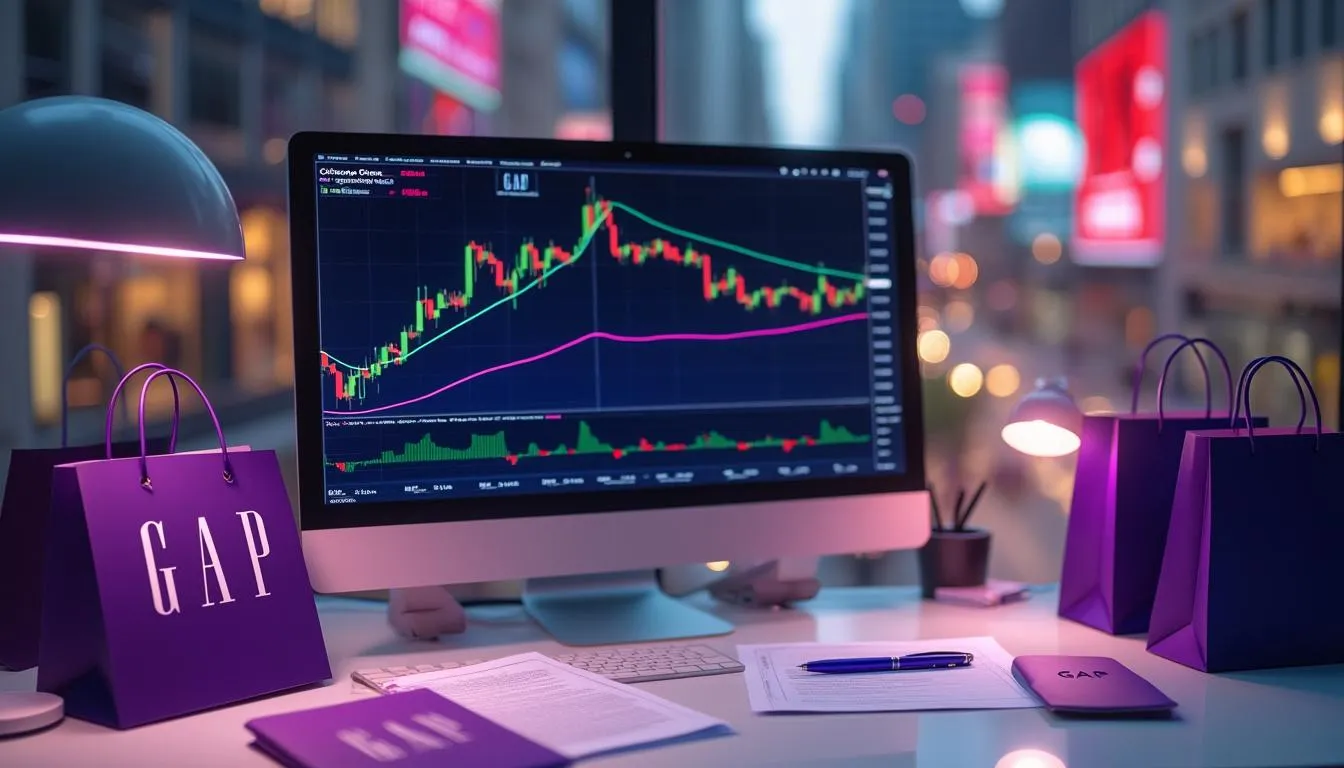Softer Analyst Stance Raises Questions on ANF’s Next Act
Abercrombie & Fitch Co. (ANF), a prominent name in global specialty retail, has just received a significant rating downgrade from Citigroup. The investment bank shifted its stance from "Buy" to "Neutral" and set a price target of $105, compared to the current price of $93.10. This adjustment leaves investors with a potential 12.8% upside, but the move signals growing caution from a major Wall Street player amid shifting retail sector dynamics.
Analyst upgrades and downgrades are critical for sophisticated investors, as they encapsulate both sector-wide trends and company-specific risks. Citigroup’s move, given its influence and sector expertise, compels investors to reassess the risk-reward profile for ANF at a time when consumer discretionary stocks face macroeconomic and geopolitical pressure.
Key Takeaways
Potential upside of 12.8% remains, with Citigroup lowering ANF to Neutral and targeting $105.
Recent price weakness: ANF is down 2.1% today and has seen tepid performance, with a 20-day EMA below $97 and RSI near 46, hinting at neutral momentum.
The stock remains volatile: ANF’s yearly range ($65.40 to $170.76) highlights both its rebound potential and risk, while average daily volatility sits at 5.3%.
Key news events: Tariff concerns and ANF’s inclusion among retailers expected to beat earnings this season create a complex narrative for near-term performance.
Citigroup’s downgrade carries weight due to its deep retail sector expertise and influence in institutional investing circles, often reflecting early warnings on consumer shifts.
Citigroup’s Downgrade: What’s Driving the Change?
The Analyst’s Perspective and Citigroup’s Influence
Citigroup, a global banking powerhouse with one of the most respected retail equity research teams on Wall Street, has a long track record of both identifying secular retail winners and flagging inflection points when risks mount. The move from "Buy" to "Neutral" is notable, especially as the firm’s previous optimism was supported by strong consumer demand and margin improvement.
Analyst confidence: Citigroup’s downgrade signals rising caution amid retail headwinds and cost pressures.
Setting a $105 target (still above current levels) implies the bank sees limited short-term downside, but no immediate catalysts for a return to outperformance. Given Citigroup’s broad institutional client base and sector specialization, its moves often trigger meaningful sentiment shifts among professional investors.
Stock, Sector, and Financial Performance: Assessing the Backdrop
Year in Review: Price, Volatility, and Sentiment
Current price: $93.10 (down 2.1% today)
52-week range: $65.40 (low, April) to $170.76 (high, August)
Average daily volatility: 5.3% (above retail sector average)
Recent trend: Neutral, with a 20-day EMA of $96.4 and RSI at 46 (neither overbought nor oversold)
Sentiment analysis: 110 up days vs. 137 down days in the past year, showing more negative than positive closes
Abercrombie’s stock has experienced considerable volatility, peaking above $170 before retracing sharply. The current price sits well below its highs, with technicals suggesting a wait-and-see period for momentum traders.
News Flow: Tariff Risks and Earnings Optimism
Tariffs: Recent coverage by Seeking Alpha highlights ANF among U.S. retail icons facing rising tariff costs, with implications for margins and earnings growth if trade tensions escalate (article link).
Earnings optimism: Zacks Investment Research recently tagged Abercrombie as one of four retailers likely to beat earnings estimates this season, reflecting continued operational strength and market share gains (article link).
Stock resilience: Despite recent market weakness, ANF managed a notable gain in the previous session, closing up nearly 2% while broader indices slumped (article link).
Financials Snapshot
Abercrombie & Fitch continues to generate headlines for its disciplined cost control, improved gross margins, and ability to drive growth in both its namesake and Hollister brands. However, the sector’s persistent discounting, supply chain complexity, and macro headwinds have forced analysts to temper their expectations for near-term outperformance.
Potential Upside: Is 12.8% Enough?
With Citigroup’s new $105 price target, investors face a potential upside of 12.8% from current levels. While this is an attractive short-term return in the context of the S&P 500’s historical averages, it falls short of the high-octane moves ANF delivered in the past year.
For value and momentum investors, the question becomes whether a double-digit gain justifies the risk profile in an environment with rising input costs, global trade uncertainty, and fickle consumer spending patterns. In the context of Citigroup’s more cautious stance, the risk/reward calculus has clearly shifted.
Key Questions for Investors
Macro Uncertainties and Retail Sector Headwinds
Tariffs: How much margin pressure could arise if trade negotiations deteriorate further?
Consumer spending: Can ANF’s premium brand positioning shield it from broader consumer belt-tightening?
Operational execution: Will the company’s focus on digital expansion and store optimization offset sector-wide cost headwinds?
Technical and Sentiment Considerations
Neutral RSI and EMA: Suggests no clear near-term trend, favoring range-bound trading.
Volatility: High historical volatility both creates opportunities for nimble traders and raises risk for long-term holders.
The Bottom Line: A Downgrade That Demands Caution
Citigroup’s downgrade of Abercrombie & Fitch to Neutral is a wake-up call for investors who may have grown accustomed to the company’s resilience and strong operational execution. While a 12.8% upside remains on the table, it comes with the caveat of mounting external risks and a more challenging sector backdrop.
For sophisticated investors, the Citigroup move is less about calling a top and more about recalibrating expectations. The next earnings report, ongoing trade developments, and ANF’s ability to defend its margins will be critical catalysts to monitor. In this environment, patience, discipline, and rigorous risk management are essential.
“Many well-known American firms face new headwinds from increased input costs due to tariffs, which could pressure margins and slow earnings growth.”
— Seeking Alpha, Aug 19, 2025

.svg)
.svg)
.svg)
.svg)

.svg)

.svg)
















